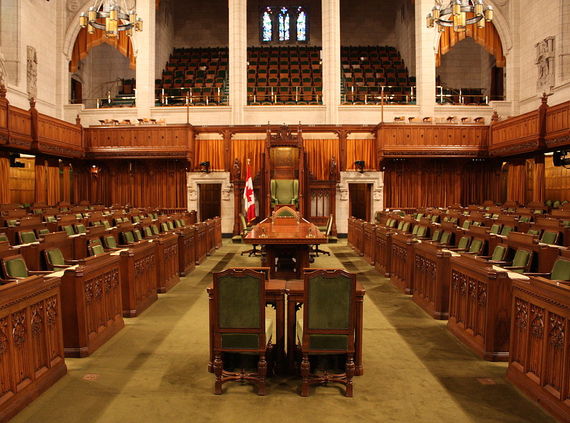Recent legislation in Canada gives much power to terminally ill patients deciding when and if to seek a physician's assistance in dying. Bill C-14, passed in June, outlines federal requirements that patients must meet before lawfully requesting the service. With a majority of Canadians in favour of physician-assisted death (PAD) in cases of terminal illness such as advanced cancer, restricting access to those encountering a "reasonably foreseeable" death is by its very nature controversial. Such controversy has been highlighted by a recent court case challenging the clause in addition to at least one leading expert declaring the law to be unconstitutional. An important question to ask is how reasonable the legislation is when it comes to those belonging to one of the three specific groups of patients banned from access: those seeking advanced directives, those suffering solely from psychological illness and those under the age of 18.
Each of these cases is controversial and rightly gives many Canadians more reason for pause than do those involving terminally ill adult patients. Concerns related to the decision-making ability of those suffering solely from mental illness demand very close inspection and further medical and perhaps societal consideration. When it comes to advanced directives, hesitance to follow through with PAD on the part of the patient or his or her family and care team-once a pre-determined point of decline has been reached-make practical implementation challenging. That the legislation leaves itself willingly open for constitutional attack on these questions doesn't make the government's game plan here all that surprising. Baby steps, as they say, particularly when it comes to those most controversial circumstances.
Of the patient groups banned from accessing PAD, it's likely that the least controversial among them are mature minors. As the legislation currently stands, those 17 and under, regardless of how intolerable their disease, how overwhelming their suffering, how weak their dignity, how foreseeable their death, and, importantly, how competent they may be to understand and consent to medical treatment, they are blocked from reaching compassionate aid in dying.
In arguing against access on the part of mature minors, some have declared that because we don't allow citizens to vote before the age of 18 it would surely be illogical to allow any young citizen to make a decision related to assisted death. But this sort of argument is far from convincing and far from logical or reasoned. Restrictions related to voting age are arbitrary guidelines implemented with the hope of maximizing fairness and informed electoral decisions. But as with age related restrictions in the case of assisted death, age related voting restrictions will fail miserably in many cases. The time needed to reach sufficiently well informed and well thought out political views will vary from individual to individual, meaning that there are 16- and 17-year-olds in this society who've constructed more thoughtful and informed political views than others who have reached the age of 18 or 25. Indeed, as arguers of the above logic conveniently fail to disclose, voting age is something far from settled and far from respected, with much debate and lobbying underway to consider lessening constraints in several jurisdictions.
There are other important differences between PAD and the voting age case or any other like it. Practically, for example, it may make sense for a society to impose an arbitrary voting age. If we gave in to the proposition that some 16-year-olds (or 14-year-olds if we lower the voting age from 18 to 16) are capable of making a sufficient political decision, how then would we implement our new policy? Ought we to erect a maturity station next to the polls where voting youth are interviewed before being deemed mature enough to cast a ballot? Of course this would be absurd and we can see that pragmatism, when it comes to voting age, does seem sensible. Alcohol consumption gives another interesting case study on the merits of age restrictions but again one can quickly think of why strict and responsible enforcement makes sense with drugs.
One thing should be salient by now, however, and that is that in the vast majority of cases our youth will have plenty of opportunity for ballots and even alcohol if we are indeed wrongheaded in the age requirements we've adopted. But when it comes to assisted death -- particularly in the face of terminal disease and the excruciating suffering that too often accompanies it -- the same simply cannot be said. That opportunity diminishes like a candle's light in the wind; there is simply nothing more important to get right for Canadian youth.
Comparisons between this literally life and death issue and most others are fraught with danger. The stakes at the end of life are much higher and we in fact do have the ability to pull the patient aside and assess whether they can make an informed and coherent medical decision -- this infrastructure is already in place and ready to get to work. In the end, the ability to give informed medical consent should ultimately be determinative in these cases. Let the 'age of the patient' chips fall where they may and let Canadian youth redeem the same rights currently granted to adults. It's time our politicians and our federal government step up or step aside and let Canada's capable clinicians and ethicists do their work.

